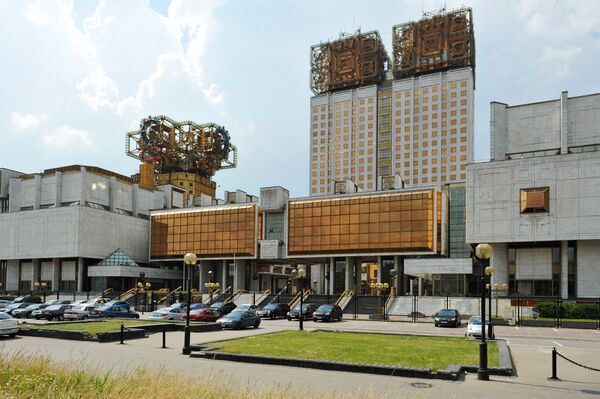MOSCOW, August 2 (RIA Novosti) – The Russian government is considering a plan to hand over control of the country’s leading physics research centers to an institute headed by a man linked to Russian President Vladimir Putin, a newspaper reported Friday.
The reform follows the state’s much-opposed attempt to bring the country’s science community under its control by revamping the Russian Academy of Sciences.
The merger of top physics centers was proposed in June by the Moscow-based Kurchatov Institute, but not reported before, the Kommersant newspaper said.
Putin ordered to have the reform drafted by September, the report said.
The Kurchatov Institute, which co-developed the Soviet nuclear bomb in the 1940s, is currently headed by Mikhail Kovalchuk, whose brother Yury is a prominent businessman and a reported affiliate of Putin.
The institute is already in agreement with 14 other Russian research centers to collaborate on cutting-edge “mega-science” projects.
But the reform pitch implies making the other research establishments subordinate to the Kurchatov Institute, said Alexander Litvak, who heads one of the 14 centers on the merger list.
The Kurchatov Institute has already taken over several physics institutes, expanding its budget by 10 billion rubles ($300 million) in 2010-2012.
Mikhail Kovalchuk has not made any public comment about the proposed merger. The president of the Russian Academy of Sciences, Vladimir Fortov, was cited as saying he opposed the merger in its current form.
Fortov was elected to his post in May, taking over a job that, media claimed, Kovalchuk wanted for himself but could not have because he was repeatedly snubbed by academy members, who denied him a formal status that would have entitled him for the election.
Within weeks of Fortov’s election, the government announced a major overhaul of the Russian Academy of Sciences, which it had long criticized as ineffective.
That reform, which proposed to hand over control of academy assets and institutions to the government, was fast-tracked in two readings by the parliament, but stalled until September pending the third and final reading after protests from the Russian scholarly community.


